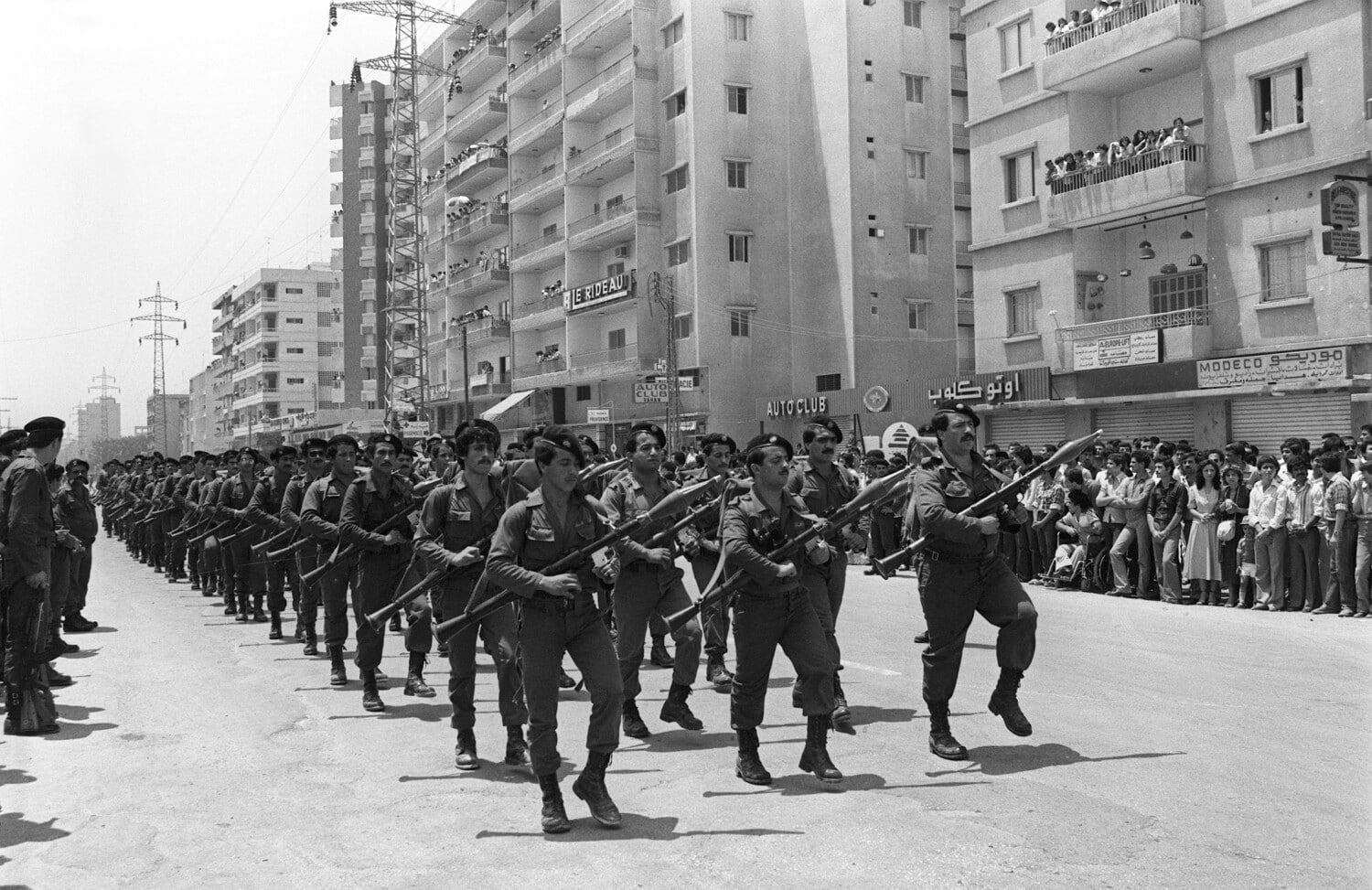
In the mid-1980s there was huge chaos. Drugs trafficking was at its height and financed the various militias. In the Beqaa Valley, cannabis was replacing less profitable crops. Political murders became frequent. In the partitioned capital of Beirut, a ‘Green Line’ separated the Christian and Muslim militias in the (respectively) eastern and western districts of the city and its suburbs. People were taken hostage for ransom or as a means of political pressure. It became increasingly dangerous to try and cross the Green Line and to enter ‘enemy territory’.
As the war dragged on, the Syrian presence became more visible, with an increasing number of Syrians taking part. In 1983, they fought against the remnants of the PLO in Tripoli, with the help of dissident Palestinians. In 1987, 7,000 Syrian troops were sent to Muslim areas. And from 1985 to 1988, the Syrians backed the Amal which fought Palestinian groups in what was called ‘the War of the Camps’.
The political situation too was extremely unclear in this period. The term of President Amin Gemayel – who had succeeded his murdered brother Bashir in 1982 – came to an end in the autumn of 1988. The Parliament proved unable to elect a new president – neither the candidate advanced by Syria, nor other candidates – among whom general Aoun – received enough votes. There was a vacuum. Fifteen minutes before the end of his term, Gemayel named a new Prime Minister: (general) Michel Aoun. This was a violation of the National Pact concluded in 1943, which stipulated that the Prime Minister had to be a Sunni.
Worse perhaps, it meant a slap in the face of the Syrians. They were backed by the Americans, who had been very active behind the scenes, and who were also displeased with this outcome. The incumbent Prime Minister, Salim al-Hoss, remained in office, while Aoun claimed the position as well. As a result, Lebanon was without a president, but had two Prime Ministers and two governments, neither of which could actually govern the country.

